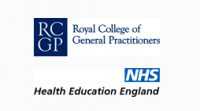Mental Health e-Learning Programme



Mental health disorders are now one of the main healthcare problems across the world. This programme aims to equip healthcare professionals with vital skills and strategies to help a patient experiencing a mental health problem, such as depression, anxiety or bipolar.
Developed by Health Education England e-Learning for Healthcare and various partner organisations, the content has been written and peer-reviewed by leading clinical specialists in the UK. It is relevant to all health and social care practitioners around the world – regardless of specialty or profession.
Highly interactive learning for practitioners globally
The Mental Health e-Learning Programme features many interactive elements, such as clinical case studies, diagrams and self-assessment questions to help embed learning and foster deeper understanding. There are also links to further reading for more advanced learning on mental health issues.
On successful completion of each module assessment, you can download or print a certificate as evidence of your learning.
The content is available online so you can fit the learning around your busy schedule.
Want to take your learning further?
Many of our other programmes also include dedicated modules on mental health. Click on the links below for more information:
- Adolescent Health programme
- Healthy Child /Healthy School Child
- e-Learning for General Practitioners
- Female Genital Mutilation programme
------
eIntegrity programmes are developed by NHS Health Education England’s e-Learning for Healthcare programme (HEE e-LfH).
The programmes are high quality self-directed learning programmes. They are designed to support training and CPD and are excellent resources alongside other traditional teaching methodologies. They have been developed by the UK NHS for use in the NHS. However, many of the programmes have international relevance, particularly the specialty training programmes which are often mapped to UK specialty training curricula.
------
Module 1: Mental Health Awareness
These four sessions cover topics such as:
- self-harm
- psychological therapies
- physical healthcare for mental health patients
- medically unexplained symptoms
The sessions are designed for general practitioners, practice nurses and other allied health professionals. The content has been developed in collaboration with the Royal College of General Practitioners.
Module 1: Perinatal Mental Health
These five sessions are suitable for all healthcare professionals who work with mothers or babies from the period prior to conception until the child is one:
- The introductory sessions provide a broad overview of the topic.
- The next three sessions focus on different stages in a mother’s journey – pregnancy, birth and the first year of a child’s life.
- The subsequent sessions contain more detailed advice for particular professional groups. For example, obstetricians may choose to complete session 4 on labour and the immediate post-partum.
No prior knowledge of perinatal psychiatry is needed. The content has been developed in collaboration with several UK medical royal colleges, including the Royal College of General Practitioners, the Royal College of Obstetricians and Gynaecologists and the Royal College of Psychiatrists.
Module 1: Mental Health in Emergency Medicine
These four sessions cover:
- suicide and self-harm
- assessment and management of violent behaviour in emergency department: post-assessment
- abscond and treatment refusal
- personality disorder
The content is suitable for all healthcare professionals who work in the emergency medicine field.
Module 1: Mental Health for Practice Nurses
This part of the programme covers:
- Managing alcohol misuse in primary care
- Managing drug misuse in primary care
- Medication for mental health problems in primary care (part 1)
- Medication for mental health problems in primary care (part 2)
- Care planning
- Specific mental health conditions
- Your patient’s journey
Module 2: the Mental Capacity Act
The Mental Capacity Act 2005 (MCA) covers people aged 16 and upwards in England and Wales, who cannot make some or all decisions for themselves. The MCA protects the human rights of people who may lack mental capacity to make their own decisions. It empowers people to make their own decisions as far as possible, and ensures that decisions made on their behalf are always the least restrictive of their rights that will meet the need, and in their best interests.
This session explores how that works, and introduces the five statutory principles of the Act.
Module 2: Assessing Mental Capacity
This session links to the statutory principles in the above 'Mental Capacity Act as Part of Human Rights', and explains the requirement to do everything practicable to empower people to make their own decisions, with practice examples.
It also outlines the Mental Capacity Act test for lack of capacity with practice examples and explains who is responsible for the assessment, what should trigger an assessment, how should it be done and how lack of capacity to consent should be recorded.
Module 2: Planning Ahead using the MCA
This session describes how a person can make decisions that will be binding should they lose capacity in the future, and also create non-binding but essential guidance for future professionals.
The session also explains lasting powers of attorney. It describes the powers of deputies appointed by the Court of Protection and how the powers of a deputy differ from those of an LPA attorney. It outlines how a professional should act if they suspect that an attorney or deputy is not acting in the best interests of the person.
Module 2: Best Interests
The session explains ‘best interests’ by outlining the statutory checklist and discussing when this must be used, and how. It explores the tension that often applies between what a person may want and what is offered, whether due to financial/resource issues, or as a matter of informed expert opinion.
It looks at the role of independent mental capacity advocates and when they must be instructed. Finally, it explores how best interest decision-making should be recorded.
Module 2: Restraint
It is sometimes necessary to restrain a person lacking mental capacity in their best interests, to prevent harm to them. The MCA sets out the framework for making best interest decisions about restraint in a way that protects the person’s rights and provides protection from liability when the person cannot consent to the proposed actions.
In some circumstances, the care plan for such people might be so restrictive that it amounts to depriving them of their liberty. Deprivation of liberty of someone lacking capacity is not lawful or protected from liability unless explicitly authorised (see the Deprivation of Liberty session below). However, restraint and deprivation of liberty overlap and practitioners must understand clearly how to use them lawfully within the MCA.
Module 2: Deprivation of Liberty
The session describes deprivation of liberty in health and care settings. It explains how to recognise deprivation of liberty, when to use the Deprivation of Liberty Safeguards (DoLS) to protect someone’s rights, and when providers and commissioners must apply directly to the Court of Protection.
The session outlines the human rights protections that these legal frameworks provide for the person and for the provider and their staff. It looks at the practice issues which have been identified with the existing frameworks, with a brief account of proposed legal changes. Finally, it explores case law developments and how best to protect the human rights of people using services within current uncertainties.
Module 2: Relationship between the MCA and the Mental Health Act
The session explores the relationship and differences between the Mental Capacity Act 2005 (MCA) and the Mental Health Act 1983 (as amended) (MHA).
The complexities and confusion tend to cluster around deprivation of liberty: the session explains the circumstances when each legal framework can, or indeed must, be used, or, conversely, is not available.
While some elements of the interaction between the two Acts are only going to apply in psychiatric settings, it is essential for professionals in all health settings to understand the framework of the relationship between them, and additionally to know how to find further guidance in more complex situations.
Module 2: The MCA and Young People Aged 16 or 17
The Mental Capacity Act (MCA) applies whenever a person aged 16 or over lacks capacity to consent to a specific health or care intervention. This session outlines the MCA and how it is applied to people aged 16 or 17.
Module 2: Research Involving People who Lack Capacity
It is important that research involving people who lack capacity to consent to their involvement can be carried out, and that it is carried out properly.
The session describes the legal framework which governs decisions about research with people who lack mental capacity.
Module 2: The MCA and Adult Safeguarding
The session looks at the relationship between the Mental Capacity Act (MCA) and adult safeguarding.
Module 2: Settling Disputes and Disagreements
This session discusses how to achieve agreement and how to proceed if it is impossible to find an agreed solution.

Relevant to health and social care professionals globally

Produced by clinical experts in the UK

Dynamic and engaging content, with videos, case studies and questions
Mental Health Awareness
This introductory session aims to raise awareness of mental health issues with health care staff. It is designed to give a broad overview of what encompasses mental illness whilst highlighting the link between mental and physical health diagnoses. It also provides some simple guidance on how best to care for someone with mental health difficulties. More detailed profession-specific learning sessions will be contained in later modules within this series.
On completion, you can download and print off a certificate that is endorsed by the relevant professional body.

- Compassion in Practice | Essential healthcare trai...
- Posted By eIntegrity Healthcare e-Learning
- Posted Date: 2025-01-09
- Location:Online
- This e-learning resource about caring and compassion is designed to support the work of all nurses, ...
- Genomics Education Programme
- Posted By eIntegrity Healthcare e-Learning
- Posted Date: 2025-01-03
- Location:Online
- Preparing for the future of healthcare Genomics is a rapidly expanding area of medicine, with the...
- e-Pain | A pain Management Programme
- Posted By eIntegrity Healthcare e-Learning
- Posted Date: 2024-12-27
- Location:Online
- Learn how to diagnose and manage pain effectively e-Pain is designed to help healthcare professio...
- Sexual and Reproductive Healthcare Training | e-SR...
- Posted By eIntegrity Healthcare e-Learning
- Posted Date: 2024-12-27
- Location:Online
- Specialist training for doctors, nurses and other healthcare professionals e-Sexual and Reproduct...
- Musculoskeletal Primary Care e-Learning Programme
- Posted By eIntegrity Healthcare e-Learning
- Posted Date: 2024-12-26
- Location:Online
- With musculoskeletal (MSK) disorders on the increase, all healthcare professionals need to have a co...








